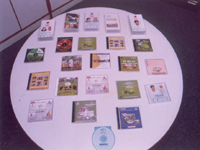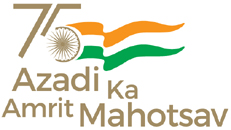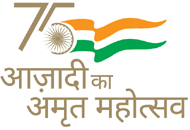



Journal of Agricultural Extension Management
Vol XVIII July - December, 2017 No.2
1. Application of Behavioural Economics for Promotion of Environment-friendly Agricultural Practices for Food Security and Enhanced Farm Income/ D. Manikandan
Abstract
Over the years the balance between the food production and environmental sustainability is getting skewed towards adverse environmental practices. There is increasing focus on environmental sustainability. There are a number of country specific initiatives to promote environmentally sustainable cultivation practices in the form of special schemes, incentivizing best practices in the form of subsidy, premium for organic produce etc. In recent times the application of concepts of behavioural economics in policy design has received the most attention by policy makers globally, to have a positive impact of their citizen behaviour in various walks of life. This article analyzes the utility of behavioural economics concepts in the promotion of environmentally sustainable farming practices.
Key words: behavioural economics, agricultural practices, environmental sustainability
2. Analysis of Factors Affecting Economic Empowerment of Rural Women in Ethiopia: A Logistic Regression Model / Almaz Giziew and Assaye Tesemma
Abstract
Without the participation of women in national activities, the social, economic or political progress of a country will be stagnated. However women are hampered by socio-cultural norms, lack of resources and economic opportunities. Women’s economic empowerment helps to insure gender equality and the well being of nations. The purpose of the study was to identify factors influencing economic empowerment of rural women in Bahir Dar Zuria district of Amhara region. The study was conducted using quantitative study design. The total sample size of the study was 120 respondents from four randomly selected kebeles of Bahir Dar Zuria District. The data collection was done through structured interview for quantitative survey and analyzed by using inferential statistics like chisquare test, t-test, Cramer’s V, Pearson Correlation Coefficient and regression model. Statistical Package for Social Sciences (SPSS) version 16.0 was used for data analysis. The study found that majority of rural women (75.83% ) were illiterate. The researchers found that majority of rural married women (42.4%) were economically dependent on their husbands and this economic dependency affected their decision making power and made them submissive and subordinate. According to binary logistic regression model result: decision making on household matters, credit utilization and participation in non-farm activities affected women’s economic dependency positively and significantly; whereas age of the respondents affected rural women’s economic independence negatively. Gender responsive programs should recognize that practices such as lack of access to and control over resources, and the absence of decision-making and negotiation power all negatively affect women’s economic independence. Special promotion and support have to be given to women during policy formulation and designing women sensitive issues and need based development.
Key words: Economic dependence, Economic empowerment, Ethiopia, logistic regression, women
3. Implementation of Household Approach ‘Views from Key Informants’: Case of Chalwita Model Village, Rumphi, Malawi / Beatrice Mbakaya, Dominique Ndengu and Dalo Njela
Abstract
Household Approach is one of the extension approaches being advocated in Malawi for promoting the participation of all gender categories in farm planning and management. Adopting an interpretivist’s view, this pilot study assessed the implementation of Household Approach in the Rumphi district, Malawi. Data was collected through face-to-face interviews using a checklist. In addition, documents, including reports and farmers’ record books, were analysed and focus group discussions were arranged to triangulate data. Household Approach implementation in Mhuju, Rumphi, was carried out by using a model village as a special interest group. The study has established that all stakeholders are aware of the Household Approach, however, many Household Approach tools were not adequately articulated among frontline staff and local facilitators. Joint planning and implementation of farming activities were observed among the targeted population after the implementation of Household Approach. Some resistance was noticed from male partners on women gaining access to and control over resources; however, there is a steady move towards equal access and control of resources across all gender categories.
Key words: Household Approach, peer household, local facilitator, model village
4. Constraints of Agri-Allied Sectors in Convergence of Extension Services in Four Major Indian States/ MA Kareem and Shahaji Phand
Abstract
Extension efforts in the Agri-Allied sectors are lacking effectiveness as these sectors viz, Sericulture, Fisheries, Animal Husbandry and Horticulture are not converging in their efforts. The present study was conducted in four major Indian states from four regions of the country. All the four allied sector departments were present and functioning in these states. The study was carried out to explore the constraints of allied sectors in convergence of extension services. The results from the study revealed that the major constraint in convergence was that, extension personnel were not trained to work in broad based extension and there was lack of understanding about why convergence is required. Lack of awareness, knowledge and understanding of broad based extension and absence of training in convergence were ranked the second major constraint in convergence faced by the officers followed by lack of policy guidelines, lack of interface for exchange of ideas, information and opinions. It was also found that frequent transfers and political compulsion were the least ranked constraints by the allied department staff. Wide spread awareness and effective capacity building of the officers of agri-allied departments, formulation of clear policy guidelines and timely communication of information through modern Information and Communication Technology (ICT) with sufficient allocation of budget and other resources will facilitate the convergence process in delivering extension services of agri-allied departments.
Keywords: Agri-Allied sector, Broad based extension, Convergence, Extension Services
5. Adoption of Climate Resilient Agricultural Technologies by Farmers / Balasubramani Nanjappan
Abstract
Climate change affects the livelihood of farmers and hence there is a need for adaptation. The present study was conducted in two States from northern and southern parts of India, viz., Uttarakhand and Karnataka respectively, to find out the adaptation strategies followed by the respondents and various constraints involved in adopting climate resilient agriculture practices. The study reveals that a majority of the respondents (80.00%) have replaced long duration varieties with short duration varieties and adopted water conservation through Contour/ Graded bunds formation (75.56%).In addition they have also adopted improved agronomic practices such as crop rotation (88.88%), mulching (78.00%) and disease management of animals through regular vaccination (73.33%).A majority of the respondents (64.44%) have used custom hiring centers for undertaking timely operations. Meanwhile, they were facing various constraints in adopting climate resilient agricultural practices due to limited knowledge on climate resilient adaptation measures, inadequate number of extension functionaries at grass root level, and inadequate weather based farm advisories. Hence it is suggested that capacity building of farmers on several climate smart practices may be undertaken through various extension approaches for strengthening the farmers’ ability to tackle the ill effects of climate change.
Keywords: Climate Change; Climate Resilient Technologies; Agriculture; Farmers
6. National Agricultural Market (e-NAM) – A Case of its Implementation in Rajasthan/Shalendra, M S Jairath and K C Gummagolmath
Abstract
The concept of National Agricultural Market has made an impressive progress since its launch on 14th April 2016. A total of 585 markets from 18 states/UTs so far have been integrated with the common platform. In this paper an attempt has been made to assess the performance of the concept at the national and state level. The performance at national level has been evaluated using secondary information on the number of markets integrated, volume of trade and registration of stakeholders on the portal. An attempt has also been made to assess the impact of the initiative on aspects like price discovery though with special focus on the state of Rajasthan. The analysis at the national level suggests encouraging balanced spread of states as nearly two-third of the markets are participating in the Scheme from just five states. There is a need for creation of awareness among farmers and other stakeholders to help them understand the benefits and procedure of eNAM. They are also required to be trained on preparing the produce as per the requirements of such a market. In order to reap benefits of the initiative, it is required to adopt different means like capacity building of stakeholders and creation of requisite support infrastructure to improve trade on the e-portal. A commodity-focused approach in place of a wide range of commodities may yield better result. The concept has the potential to provide a solution to various problems prevailing in agricultural marketing as has been suggested by the response of the stakeholders and positive influence of the initiative on scientific price discovery.
Keywords: National Agricultural Market, eNAM, Impact, Prices, Performance
7. Impact Assessment of Climate Change Knowledge Network in Indian Agriculture (CCKN-IA) of selected blocks of Jharkhand, Maharashtra and Odisha States/ G. Bhaskar
Abstract
The study on Impact Assessment of Climate Change Knowledge Network in Indian Agriculture (CCKN-IA) is an ex-post impact evaluation study that intended to establish comparative learnings such that the CCKN–IA approach could be easily replicated across blocks of the entire state. The CCKN project was implemented in three states namely Jharkhand, Odisha and Maharashtra during 2015 – 2017. The study focuses on the extent of access to climate adaptive advisories, from the responses of the project and control farmers. It is found that the project farmers had higher access to climate adaptive advisories than control village farmers in crop production practices. As far as the adoption of climate adaptive advisories are concerned, the farmers of project villages in all the three states reported a higher adoption of climate adaptive advisories in crop production than that of the control villages. Assuming the project benefits in the pilot blocks, the same concept of CCKN-IA project can be upscaled. Accordingly the cost of implementation has been worked out and presented in this paper, so that the respective State Governments can adopt the CCKN-IA project in the entire state.
Key words: climate change, agriculture, knowledge network, CCKN, climate adaptive advisory
8. Push and Pull Factors underlying Agri Enterprise Development in Andhra Pradesh/V Deepthi, P Rambabu and T Gopikrishna
Abstract
The study endeavored to identify the factors which motivated or compelled agripreneurs to establish business enterprises. To this end, 240 agripreneurs comprising both male and female processors, manufacturers, and traders from Chitoor, Krishna and Visakhapatnam districts of Andhra Pradesh were interviewed personally using a pretested interview schedule. The statistics employed for data analysis were Henry Garett’s ranking method. The findings revealed unemployment at rank I, followed by availability of raw material and marketing facilities for the product, insufficient family income and dissatisfaction with salaried job etc. as the push factors. The ability to use previous experience at rank I, followed by family business tradition, desire to be independent and earning more income etc. were identified as the pull factors.
Key words: pull factors, push factors, agrienterprise development
9. Women Empowerment through Food Processing - a Case Study/ Rajni Goel, Rachna Singla and Jasvinder Singh
Abstract
A sample of 25 women respondents involved in food processing activities was selected proportionately to study the socio-economic profile before and after the start of an enterprise. The study revealed that 64 per cent of the women food processors had improved their standard of living followed by better saving (60%) and knowledge and attitude (52%).Some of these women trainees have emerged as successful entrepreneurs in food processing and their success stories are further reported in the study. The key issues for development of entrepreneurship in food processing were also identified through a structured schedule by personal interview with the respondents. Further, the identified issues were analysed and their mitigation strategies were also discussed. Mutually beneficial relationship between a processor and producer can solve the problem of poor quality raw material. Cost of production can be reduced by mechanization and economic size of production say the authors.
Key words: women, food processing, key issues, success stories






